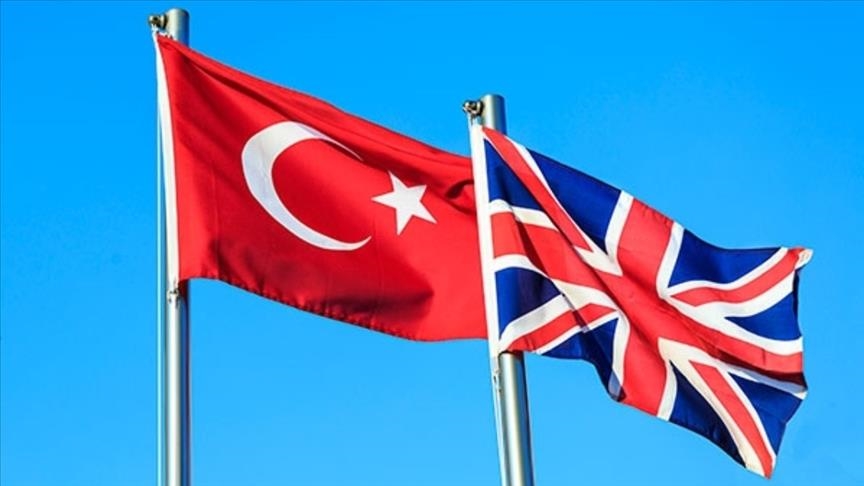Turkey is the EU’s 6th biggest trade partner, representing 3.6% of the EU’s total trade in goods with the world in 2020. In 2020, 33.4% of Turkey’s imports came from the EU and 41.3% of the country’s exports went to the EU. Total trade in goods between the EU and Turkey in 2020 amounted to €132.4 billion.
Turkey has been a candidate country to join the European Union since 1999. Accession negotiations started in 2005, but have not advanced recently. Turkey is a member of the Union for the Mediterranean.
to join the European Union since 1999. Accession negotiations started in 2005, but have not advanced recently. Turkey is a member of the Union for the Mediterranean.
TURKEY’S TRADE PICTURE:
- Turkey is the EU’s 6th biggest trade partner, representing 3.6% of the EU’s total trade in goods with the world in 2020.
- The EU is by far Turkey’s largest import and export partner, as well as its main source of investments. In 2020, 33.4% of Turkey’s imports came from the EU and 41.3% of the country’s exports went to the EU.
- Total trade in goods between the EU and Turkey in 2020 amounted to €132.4 billion. The EU’s imports from Turkey were worth €62.6 billion and were led by machinery and transport equipment (€24.1 billion, 38.5%), clothing (€8.3 billion, 13.3%), and agriculture and raw materials (€5.3 billion, 8.5%). The EU’s exports to Turkey totalled €69.9 billion. They were dominated by machinery and transport equipment (€30.6 billion, 43.8%), chemicals (€12.9, 18.5%) and fuel and mining products (€6.4 billion, 9.2%).
- Two-way trade in services between the EU and Turkey in 2019 amounted to €26.5 billion, with EU imports of services representing €13.9 billion and exports €12.6 billion.
Let me explain the advantages of supplying from Turkey;
- -Faster delivery times,
- -Lower MOQ than Asian countries,
- -Less inventory costs,
- -Samples can be received faster,
- -Low transportation costs with hybrid RoRo
- -Experienced manufacturing engineers
- -World’s 15th and Europe’s 5th largest automotive manufacturer.
The Most Succesful Industries in Turkey
- MANUFACTURING: Turkey’s manufacturing industry is varied, from textiles to iron, steel and plastics. Income is generated across all the products which are made and exported from Turkey but electronic goods are the most successful production area in the country. The EU’s largest producer of TVs, Vestel, is based in Turkey. In 2006, almost a quarter of TVs sold in Europe were manufactured by Vestel. Other large brands of electronic goods in Turkey include Beko, which produces kitchen appliances.
- DEFENCE: The defense industry is one of the most successful industries in Turkey. In 2016 alone Turkey manufactured military products worth $5.9 billion. They exported $1.7 of these products abroad. Previously, the defense industry was 80% reliant on external supplies of military products, that figure has fallen to only 40%. That change has only taken 15 years to happen so it is clear the industry is well on its way to being self-sufficient.
- COSMETIC TREATMENT: It might surprise you that plastic and cosmetic surgery in Turkey is one of the most successful industries. This is because there is growing demand worldwide for people having life-changing procedures such as liposuction. There is also an increasing amount of UK residents who are traveling abroad for plastic surgery and as a result, Turkey has become a hotspot for treatment. Lower prices and English-speaking doctors are part of the attraction for Brits seeking surgery in Turkey. Many practices are also UK-registered, which adds extra reassurance.
- TOURISM: Although Turkey’s tourism industry has been heavily impacted by domestic disputes and devastating terrorist attacks last year, it is still one of the most rapidly growing industries. Turkey is, and always will be, a holiday hotspot. Visitors are attracted by the warm temperatures, beaches, and luxury hotels. According to Thomas Cook, 11 of the best 100 hotels in the world are located near the country’s beaches. Around £3.4 million was earned from tourism in the first three months of 2017. Overall the risk remains low and people are still traveling, particularly to popular holiday destinations such as Antalya which is where 30% of all tourists visiting Turkey stay.
- AGRICULTURE: Traditionally, agriculture was the most popular industry in Turkey. People lived simply and there was an abundance of farmers. The industry remains responsible for 25% of all jobs in Turkey. Despite a decline over the past 30 years, as people choose more technical city-based jobs, the industry stays successful due to the ideal growing conditions in Turkey. Almost any crop can be grown in the fertile soil, from cereals to fruits and vegetables. Most of the crops are exported to EU countries, the US, and the Middle East. Exports bring in around $17 billion every year. Aside from income and employment, the industry’s main success is that the country is self-sufficient when it comes to food.
